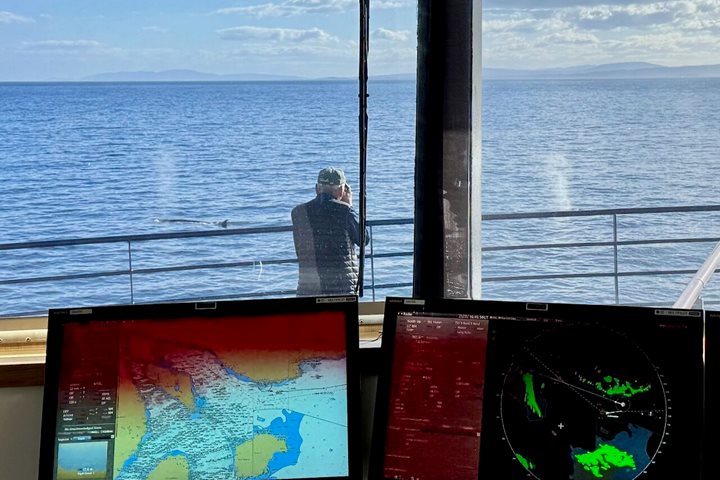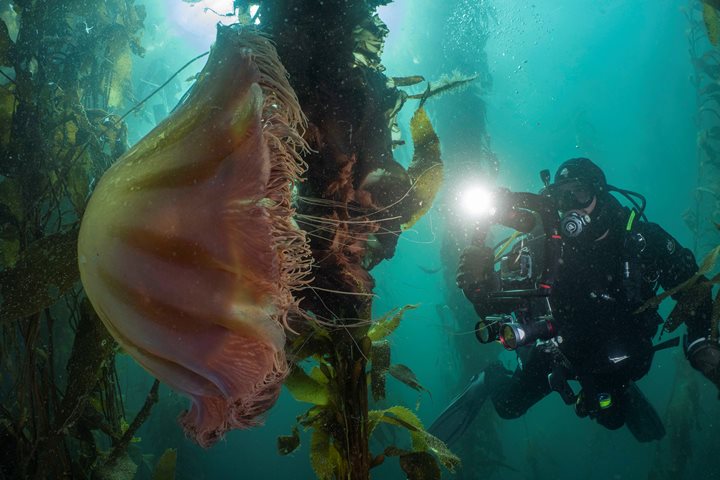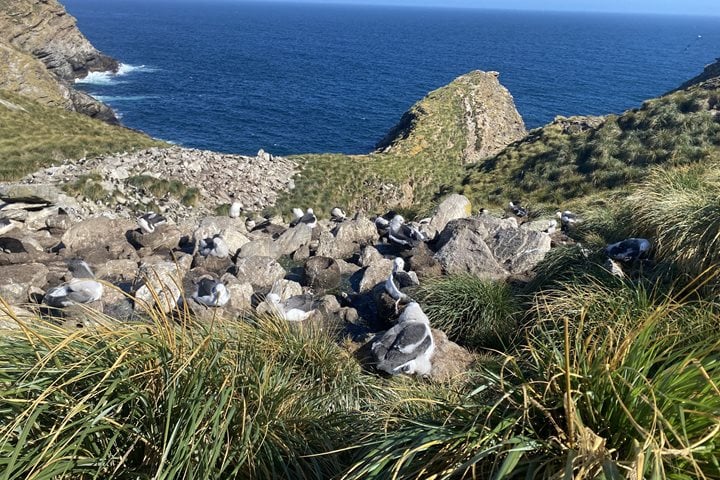After leaving South Georgia we knew there would be a two-day crossing to the protection of the Falkland Islands and the capital Stanley. As the southern travelling season heads towards equinox, equal night, it means that the summer weather will change quickly in the Southern Ocean. The winds were fast and changeable which made for a confused sea state.
The benefit for those awake and alert was a chance to see the great seabirds of the Southern Ocean make their living in the winds and waves. Petrels, prions, and albatross were the quarry for the day. As the wind ebbed and flowed around the ship, these magnificent birds made their way past us and in some cases followed us as we ventured west. They can change their course as is needed in search of food in this vast place. We held true to a course of 280 west-by-northwest to minimize our time exposed to the seas. National Geographic Explorer is a large sturdy ship which can sail these seas in comfort. It is interesting though to think what an albatross witnesses as it glides past us, does it wonder whether we are a fishing boat with possible catch they could plunder. Several young albatross came close while their older wiser kin stayed some distance, knowing that we don’t try to fish nor do we dump offal overboard.
There were informative talks and meals served as we moved west, but it was the memories of South Georgia and her multitude of seabirds that were reignited as some of them followed us towards the end of our journey.







